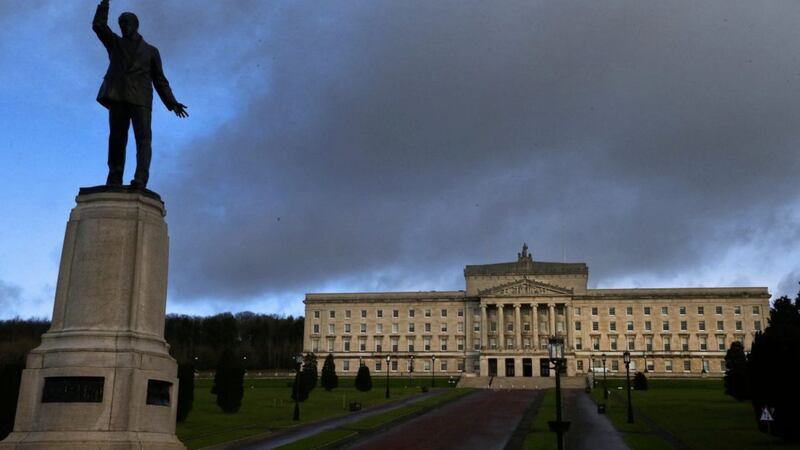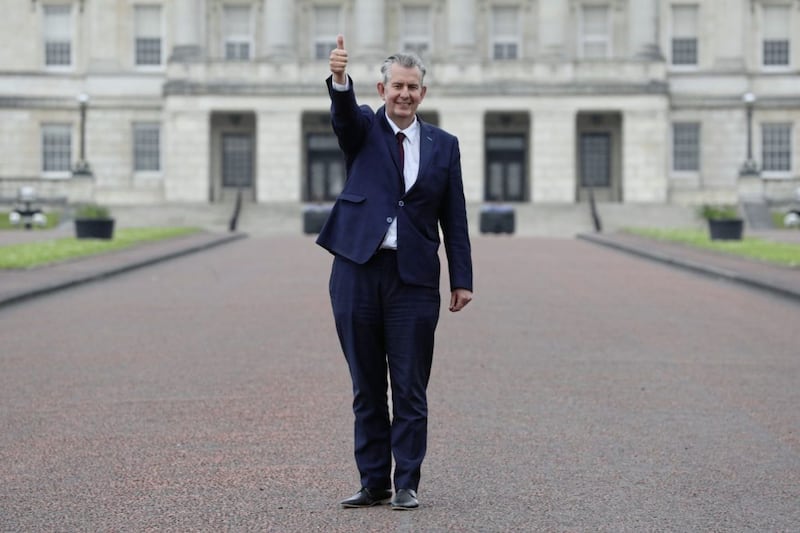We have now been 683 days without a government and that makes us ultra-special – and for all the wrong reasons.
Actually, it’s rather scary.
No strategic decisions are being taken to plan for the future health, education, environmental, or transport and other needs of our 1.87 million people.
No minister is out on the world stage fighting for our share of inward investment and wealth creating jobs.
A particularly sore point I’d say, for - among others - those waiting to hear whether they’re among 490 workers who’re to lose their jobs at Bombardier.
It’s all the scarier because barring a miracle we look doomed to be without any assembly or executive for the foreseeable future.
Does anyone seriously believe that there can be even baby steps towards restoring power-sharing before Sir Patrick Coghlin’s report into the RHI scandal has been fully digested, and before some order has emerged from the madness of Brexit?
Let’s face it, we could be talking years.
So long, in fact, that given all the uncertainties and imponderables around Britain’s future relationship with the European Union, we might first have to contend with a referendum on Irish unity and another independence vote in Scotland, not necessarily in that order.
For the truth is that no one has a clue where all the pieces from the Brexit misadventure will land.
Unionists should be careful what they wish for.
Those in the DUP who in their flightier moments prefer a catastrophic no-deal Brexit to Mrs May’s and the EU’s withdrawal agreement might reflect on the wisdom of ensuring that a future Irish unity referendum would be, in effect, also a plebiscite in which a new more diverse Northern Ireland majority, forced out of the EU against its will, could vote to leave a declining diminished UK and to re-join the EU.
If the withdrawal agreement is rejected in Westminster, which is very likely but not certain (two weeks can be an eternity in politics) by far the best outcome would be the stopping of the Brexit clock and the holding of what’s been called a People’s Vote in which UK voters, seeing that membership of the EU is preferable to what is now on offer after two years of tortuous negotiations, would vote to stay in the EU after all.
And a relieved EU would surely proceed with significant reforms of the kind denied to David Cameron, notably of immigration rules.
Back here, civil servants, whose job is to implement the decisions of ministers, have been put in an impossible position since the collapse of power-sharing.
And the secretary of state’s recent legislation giving officials limited powers to keep Stormont running, while understandable in the circumstances, is in the words of Naomi Long, one of the ablest of our increasingly irrelevant Stormont politicians, akin to putting a sticking plaster on a broken leg.
At one level, we can see the impact of the collapse of the Good Friday institutions in our decaying public services, e.g. longer waits for “red flag” referrals by GPs, ever shrinking schools’ budgets, and even the cancellation of the sports coaching programme in primary schools.
There has also been the scandal of not implementing Sir Anthony Hart’s proposals for compensating survivors of institutional abuse and the abject failure to move decisively on a package of measures dealing with the legacy of the Troubles, nearly ten years after the Eames-Bradley report.
In a sense we have been lucky over the past two years – there has been no crisis such as a bird flu epidemic or a major natural or civil disaster, thank God.
Let’s hope it stays that way, but our luck could run out.
However, there is another deeply troubling consequence of the political paralysis that no one is talking about, not even the Churches.
And it should be seen in the context of everything we have come through over the past 50 years.
It is this.
Every day without a cross-community executive and assembly committees, every day without the bartering, the compromises, the “give and take” that should be the stuff of politics, especially in a divided society, is a day missed in the building of personal relationships and the birthing of trust between political opponents.
Every day that Stormont is closed is an opportunity missed for our politicians to set an example in civility and respect for the rest of us while toiling in furtherance of the common good.
Restoring Stormont may take a long time, but that truth, to our incalculable cost, will not change.








